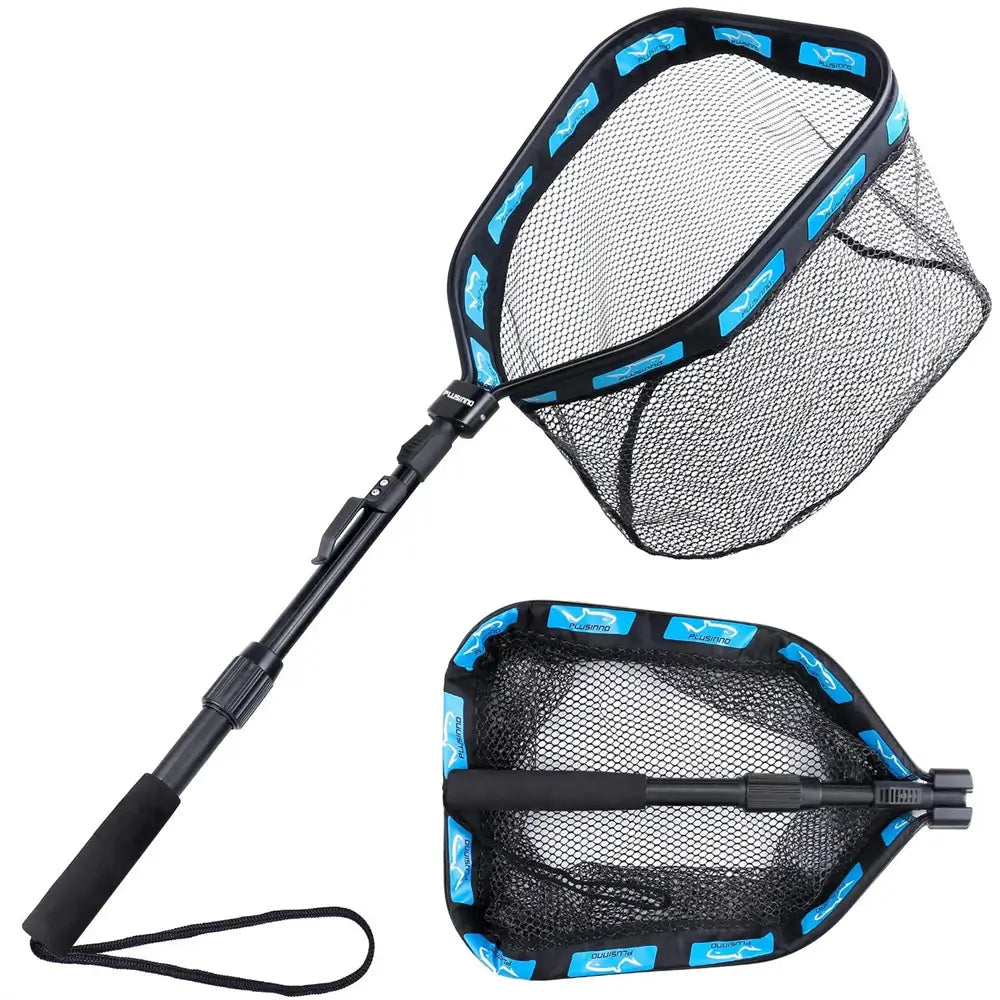-
 Retrouver dansMembres
Retrouver dansMembres Retrouver dansVidéos
Retrouver dansVidéos Retrouver dansChaînes
Retrouver dansChaînes
This website uses cookies to ensure you get the best experience on our website.
To learn more about our privacy policy Cliquez iciPréférence de confidentialité
- Mots clés - #BLOG
-
- Dernière mise à jour 30 septembre 2023 0 commentaire , 124 vues, 0 comme
More in Politics
Related Blogs
Les archives
3 Sustainable Alternatives to Nylon Fishing Nets
Posté par Fowlkes Bove
30 septembre 2023
Corps
 Fishing Net Fishing nets are essential tools for fishermen, but traditional nylon fishing nets have a significant impact on the environment. Fortunately, there are sustainable alternatives to nylon fishing nets that can help reduce the negative impact on the environment. In this article, we will explore three sustainable alternatives to nylon fishing nets. 1. Hemp Fishing Nets: A Durable and Eco-Friendly Alternative Hemp is a sustainable and eco-friendly alternative to nylon fishing nets. Hemp is a fast-growing plant that requires less water and pesticides than cotton. Hemp fibers are also stronger and more durable than nylon fibers, making them an excellent choice for fishing nets. Hemp fishing nets are biodegradable and do not release harmful chemicals into the environment. 2. Recycled Fishing Nets: Turning Waste into a Resource Recycling fishing nets is an innovative way to reduce waste and create sustainable alternatives to nylon fishing nets. Recycled fishing nets are made from discarded fishing nets that are collected from the ocean or fishing communities. These nets are then cleaned, processed, and turned into new fishing nets. Recycled fishing nets are durable and have a lower environmental impact than traditional nylon fishing nets. 3. Bio-Based Fishing Nets: A Renewable and Sustainable Option Bio-based fishing nets are made from renewable and sustainable materials such as cornstarch, sugarcane, or bamboo. These materials are biodegradable and do not release harmful chemicals into the environment. Bio-based fishing nets are also strong and durable, making them a viable alternative to nylon fishing nets. Conclusion Sustainable alternatives to nylon fishing nets are essential for protecting the environment and preserving marine life. Hemp fishing nets, recycled fishing nets, and bio-based fishing nets are just a few examples of sustainable alternatives that can help reduce the negative impact of traditional nylon fishing nets. By choosing sustainable fishing nets, we can help protect the environment and ensure a sustainable future for generations to come. Related Websites: 1. https://www.fisheries.noaa.gov/ 2. https://www.fisheries.org/ 3. https://www.worldwildlife.org/
Fishing Net Fishing nets are essential tools for fishermen, but traditional nylon fishing nets have a significant impact on the environment. Fortunately, there are sustainable alternatives to nylon fishing nets that can help reduce the negative impact on the environment. In this article, we will explore three sustainable alternatives to nylon fishing nets. 1. Hemp Fishing Nets: A Durable and Eco-Friendly Alternative Hemp is a sustainable and eco-friendly alternative to nylon fishing nets. Hemp is a fast-growing plant that requires less water and pesticides than cotton. Hemp fibers are also stronger and more durable than nylon fibers, making them an excellent choice for fishing nets. Hemp fishing nets are biodegradable and do not release harmful chemicals into the environment. 2. Recycled Fishing Nets: Turning Waste into a Resource Recycling fishing nets is an innovative way to reduce waste and create sustainable alternatives to nylon fishing nets. Recycled fishing nets are made from discarded fishing nets that are collected from the ocean or fishing communities. These nets are then cleaned, processed, and turned into new fishing nets. Recycled fishing nets are durable and have a lower environmental impact than traditional nylon fishing nets. 3. Bio-Based Fishing Nets: A Renewable and Sustainable Option Bio-based fishing nets are made from renewable and sustainable materials such as cornstarch, sugarcane, or bamboo. These materials are biodegradable and do not release harmful chemicals into the environment. Bio-based fishing nets are also strong and durable, making them a viable alternative to nylon fishing nets. Conclusion Sustainable alternatives to nylon fishing nets are essential for protecting the environment and preserving marine life. Hemp fishing nets, recycled fishing nets, and bio-based fishing nets are just a few examples of sustainable alternatives that can help reduce the negative impact of traditional nylon fishing nets. By choosing sustainable fishing nets, we can help protect the environment and ensure a sustainable future for generations to come. Related Websites: 1. https://www.fisheries.noaa.gov/ 2. https://www.fisheries.org/ 3. https://www.worldwildlife.org/







commentaires